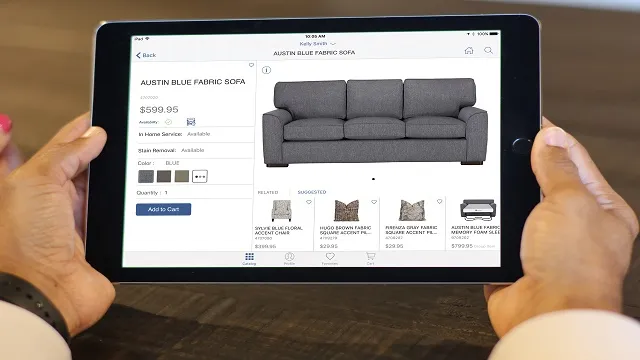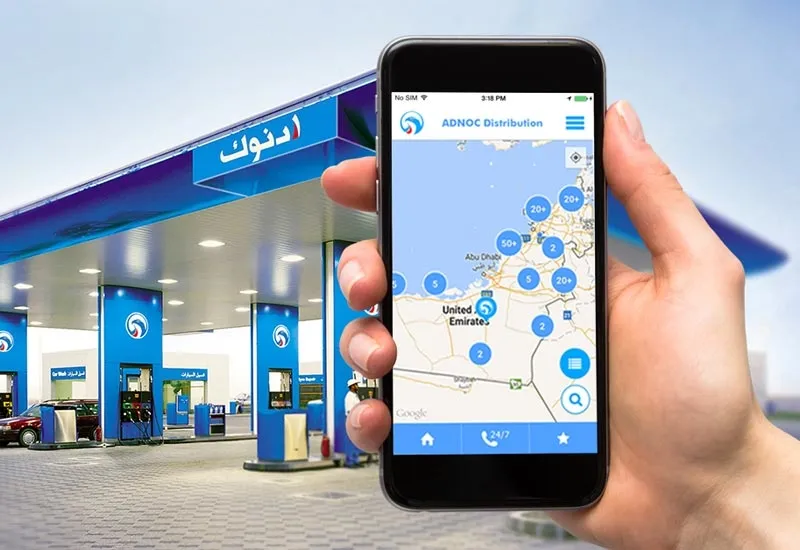
7 Reasons Why a Business Might Want to Pursue App Development for Growth

Well, if a business has carved out a reasonable online space at this point with a responsive website, an excellent next step might be to develop an app — or even several apps, depending on its creative ideation. In fact, here are 7 reasons why a growing company with grand ambitions should absolutely consider pursuing this option:
Apps Make Life Easier for Customers

People might download a business app because they’re entranced by everything shiny and new, but that’s not why they keep it. They keep it because it makes life easier somehow. It offers enough value (in whatever form) to justify its permanent occupation of a tile in their app menu. And that value spells good things for your business as a whole.
After all, that association will linger, and the next time they think about buying something from you (or hiring you for something), there’ll be a voice in their subsconscious reminding them about how good your app is, and how much time it has saved them. It’s pretty simple: give people something valuable, and they’ll be more inclined to support you, helping you grow.
Apps are Great for Personalization

When someone visits a standard website (even one fully optimized for mobile screens), the data they can provide as a matter of course is fairly basic — their location, perhaps, but even that will be loosely estimated. But on a mobile device, there’s so much rich personal information available, all stemming from the interconnectivity of digital ecosystems.
This is extremely valuable for personalization, something that’s essential for any company that wants to engender meaningful customer loyalty in a time of retail mercenaries. When you can’t stand out through your prices or your product range, you must stand out through the quality of your service — and a personal service is a compelling service. Apps make it massively easier to establish in-depth user accounts that deliver unique customer experiences.
Apps Give Brands Greater Visibility

There are enough people out there online — in different channels and on different platforms — that you’re never going to reach them all with one solution, no matter how flexible it may be. Who knows how many smartphone users out there prefer to stick to specific mobile apps instead of using often-mediocre mobile versions of websites?
And there remains something fundamentally alluring about mobile apps. They feel distinct from the rest of the online world, no matter what they actually involve. With an app (or apps) on the market, you achieve a fresh level of visibility, and give your business a chance of being discovered by people inclined to browse new app releases when relaxing on the sofa. Why wouldn’t you want that additional attention?
Apps Enable Direct Customer Communication

Reaching your customers isn’t always easy. Sure, you’ll have their email addresses, but email inboxes have a habit of filling up with spam and unimportant marketing efforts that simply get ignored until they disappear from view. Perhaps you could call them, but that’s inefficient, and many people today would rather avoid direct conversation.
But those aren’t the only ways to engage with your customers directly. When someone installs your app on their smartphone, they grant you a degree of access to its internal communication channel: the notification stream. And notifications can be powerful. Suppose that you have a limited-time offer you want to promote. An email would be slow and lack impact, a Twitter post would lack presence… but an app notification? That would get attention.
Apps can Reduce Strain on your Support Staff

Capably handling customer support is a tricky endeavor for any business with any degree of success. In the flexible working era, being reachable 24/7 isn’t just a gimmick: it’s an unambiguous strength, and potentially a necessity. Is your dedicated support team (if you even have one) in a position to handle an ever-increasing level of demand?
If you carefully review your stream of requests, however, you’ll likely find that the same things crop up over and over again.
The same questions, and the same required actions, all stemming from the inability of your customers to get the answers (or results) they need through your website alone. Why not advance your app (or one of your apps) as your support solution?
Let your customers know that all the answers to their questions will be in that app, and that it will allow them to arrange whatever actions they require: logging complaints, arranging returns, etc. Your customers will be happier, and those in your business responsible for handling support will be able to relax somewhat.
Apps Provide Superior Mobile Experiences

Responsive websites have come a long way since the first wave of smartphones forced a shift in web design methodology. To begin with, a mobile version of a site was a stripped-down version with the bulk of the content missing and a central navigation of giant buttons and often-arbitrary spacing.
Today, we have mobile-first websites, designed to fit mobile screens perfectly and scale up as needed.
Ecommerce has been a major factor in this progression, delivering new standards in mobile website layouts and lowering the barrier to entry when it comes to design — indeed, a core advantage of online retail today is even the most basic site on a solid CMS looks pretty good (as evidenced by the sale of retail storefronts as assets). All that said… even the best mobile site can’t measure up to the best mobile app.
An app doesn’t need to scale to desktop sizes, or operate on non-touchscreen devices. It doesn’t need to be able to function without the standard range of data streams available on the average smartphone. It doesn’t need to work with legacy versions of Internet Explorer, or deal with wildly-varying CPU speeds. That specific focus on the mobile format ensures that it provides a superlative experience, ultimately leaving mobile customers delighted.
Apps Fully Showcase Expertise

To grow your business, you must always put your best foot forward. Delivering anything less than your best is just asking to be outperformed by a hungrier rival. And that means advancing the best designs you can create, with the best UX you can possibly achieve. I already noted that the narrow focus of app development ensures an optimized mobile experience, but it also grants you the opportunity to prove what you can do.
- Why is this? It’s simple: speed. The initial load of a webpage can be a make-or-break event. If it takes twenty seconds to come up for the first time, that can be enough to drive a visitor away, having led them to assume that the site has major speed issues. But a 30mb app install isn’t too significant — it won’t take long through the dedicated server, and the person downloading it will be used to waiting for the initial download to finish.
That means that you can do things with an app that you wouldn’t — shouldn’t — do with a website. Use flashy animations. Provide full-size high-resolution images. Take advantage of available resources to achieve slick operation. While someone can check your website in a small window while doing other things, you have their full attention while they’re using your app. You can take advantage of that to dazzle them.
We’ve looked at 7 particular reasons why a business might want to pursue app development to support its growth, but there are plenty more reasons out there. In truth, having a mobile app is ticking an important box — you can get by without one, but your scope will inevitably be limited.





